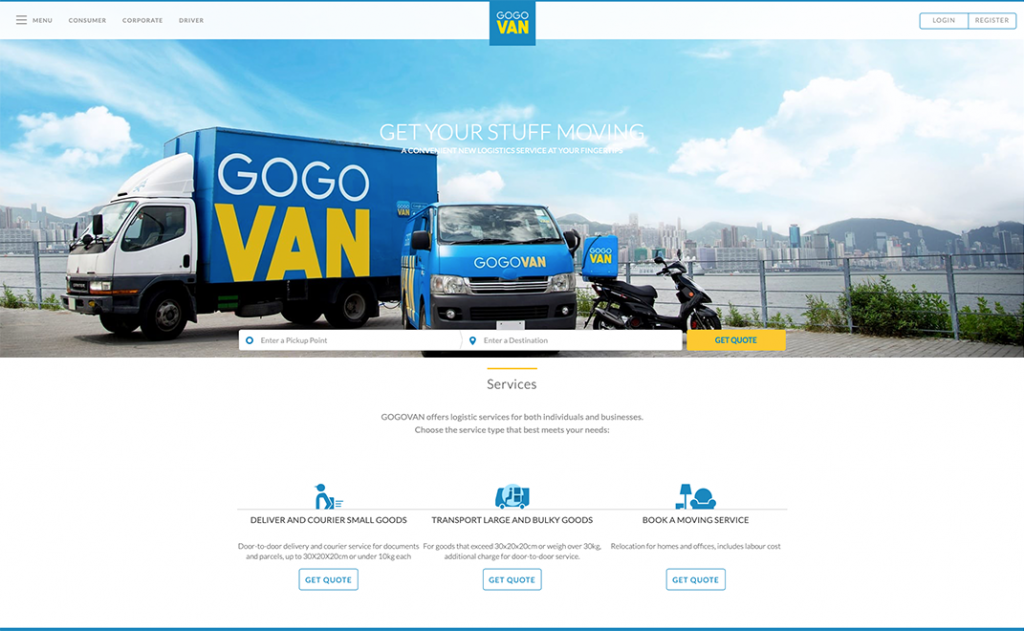Another day, another fruitful event! Aspire was honoured to be invited to attend Home Delivery Asia 2019 Event earlier last week on the 24-25 September 2019 in Suntec Convention Centre, Singapore. In brief, Home Delivery Asia 2019 is the only event dedicated to retail logistics and last-mile fulfilment, especially useful for businesses in the logistics industry. If you've missed the event, we're here to fill you up on the key take-aways from this event:
The Home Delivery Asia 2019 Event
Home Delivery Asia 2019 was enlivened with inspiring speakers from notable companies - Shell, Singapore Post Limited, eBay, Walmart, Courts, Zalora, and more! Patrick Wong from GOGOVAN Singapore spoke about the importance of a 'sharing economy' and how it is shaping the future of logistics industry.
What is The Sharing Economy?

The sharing economy is built around collaborative consumption. In a simple form, collaborative consumption is when consumers pay a certain amount of fee to 'borrow' the shared goods owned by individuals.
For example, Airbnb uses an asset light business model. Airbnb leverages on matching a traveller with consumer's property. It's a win-win case: consumers can get to earn extra cash by sharing the space and traveller gets a local experience too.

Other notable companies using the sharing economy model are Grab, Uber, Gojek, Udemy, Lyft, Eatwith, WeWork and more.
According to Forbes, the sharing economy is predicted to grow from $15 billion in 2014 to $335 billion in 2025. Business should think of how they can shift towards sharing economy model and especially more so for logistic companies.
The Logistic Industry in a Sharing Economy
GOGOVAN provides a logistic service for both individuals and businesses. It offers mainly 3 types of different services: for small goods, bulky goods, and for a moving service.

GOGOVAN is also contributing to the trending sharing economy by involving individuals who want to earn extra income by joining as the driver. GOGOVAN saw a market in the industry by connecting drivers who have the time and transportation to deliver goods.

Challenges in a Sharing Economy
GOGOVAN also mentions challenges that the industry is currently facing in the sharing economy. Some of them are:
- Cultural Expectations: Some cultures are not adaptable to sharing economy business model. Ie. Airbnb are not thriving in all countries as some countries are not as open. With Airbnb, guests are staying in a stranger's house, even sometimes with a stranger under the same roof. It raises possible issues such as cultural differences, safety and privacy issues as compared to when a guest choses to stay in a reputable hotel.
Most companies are going toward asset right than asset light.
- PATRICK WONG
Country Manager of GOGOVAN Singapore
- Asset light vs asset right: Financially speaking, not all companies are able to afford to be asset right. When companies are looking into buying those assets instead of using the sharing economy model, the financial burden on the company will be heavy. Only few companies are able to afford asset right type of business model as it heavily influences the business' cash flow - high collateral asset but weak cash flow. However, if you're still keen on going asset right, lending companies such as

In Summary
If you are looking to develop a business or thinking to innovate and expand your business, the collaborative consumption business could be the ideal solution for you. This is not complicated at all to start with. Simply think of the simplest demand people constantly use, and how the goods can be shared, borrowed, or rent among many consumers.
Psst.. You may also be interested in:
At Aspire, we envision a world where business owners have fast and simple access to the funding they need to grow. That’s why we’re on a mission to build an all in one finance operating platform for growing businesses in SouthEast Asia. Our current product provides SME and startup owners in Singapore with financial flexibility though a line of credit of up to S$150k, which can also be used to make business payments to enjoy 60 days free credit terms. With no monthly fees or obligations to withdraw, you only pay interest on the amount you end up using. Opening an account is free and can be done online here.

.svg)







